News
Germany to Establish New Regulatory Body to Combat Money Laundering
It has been reported that the German government will create a new regulatory body to combat money...
 Explore More
Explore More
News
Austria- The Growing Hub of Cryptocurrency Approves 18 Operating License
Financial Supervisory Authority like FMA of Austria received requests from forty digital asset pr...
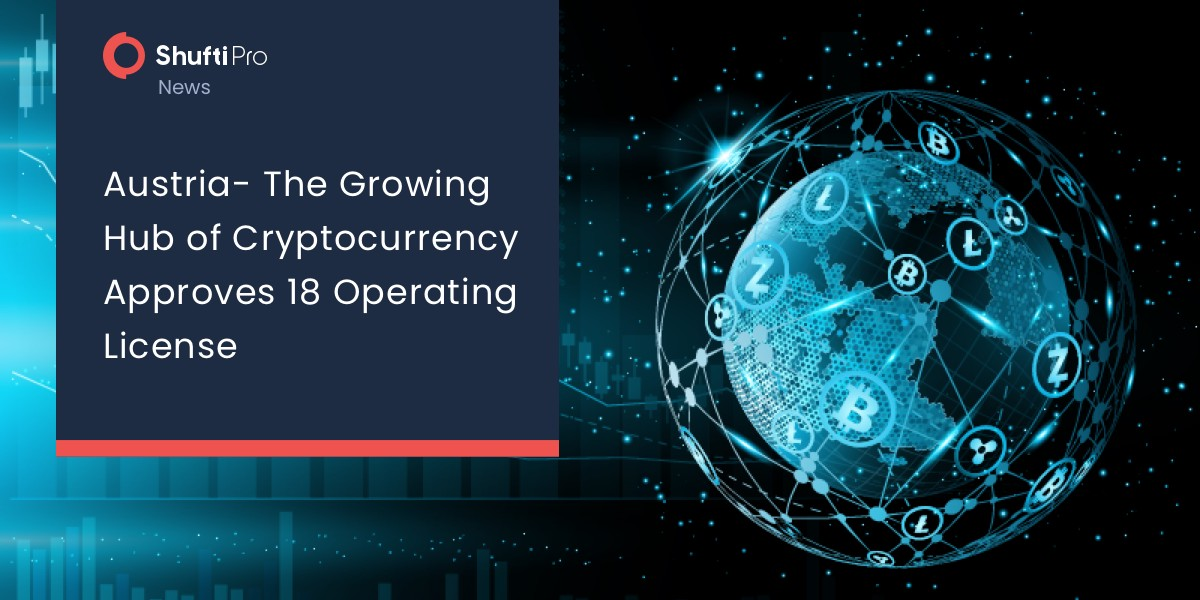 Explore More
Explore More
News
Atomic Wallet Hack Results in $35 Million Loss as Investigation Continues
Atomic Wallet users have reported losing millions of dollars worth of cryptocurrency. It was anno...
 Explore More
Explore More
News
FinCEN Hires First-Ever Chief Digital Currency Advisor to Curb Crypto Crime
To eliminate the misuse of cryptocurrencies, Michele Korver has been appointed by FinCEN as the C...
 Explore More
Explore More
News
German Watchdog Extends N26 Measures to Prevent Money Laundering
BaFin, the German financial regulator, stated on July 17th, that it was extending its measures to...
 Explore More
Explore More
News
US DOJ Arrests Two in Alleged NFT Money Laundering, Rug Pull Scheme
The US Department of Justice has arrested two in a $1.1 million non-fungible token fraud and mone...
 Explore More
Explore More
News
UK Treasury Committee Launches Inquiry into the Role of Crypto Assets and the Associated Risks
The Treasury Committee of the UK’s House of Commons has urged the public to submit their take and...
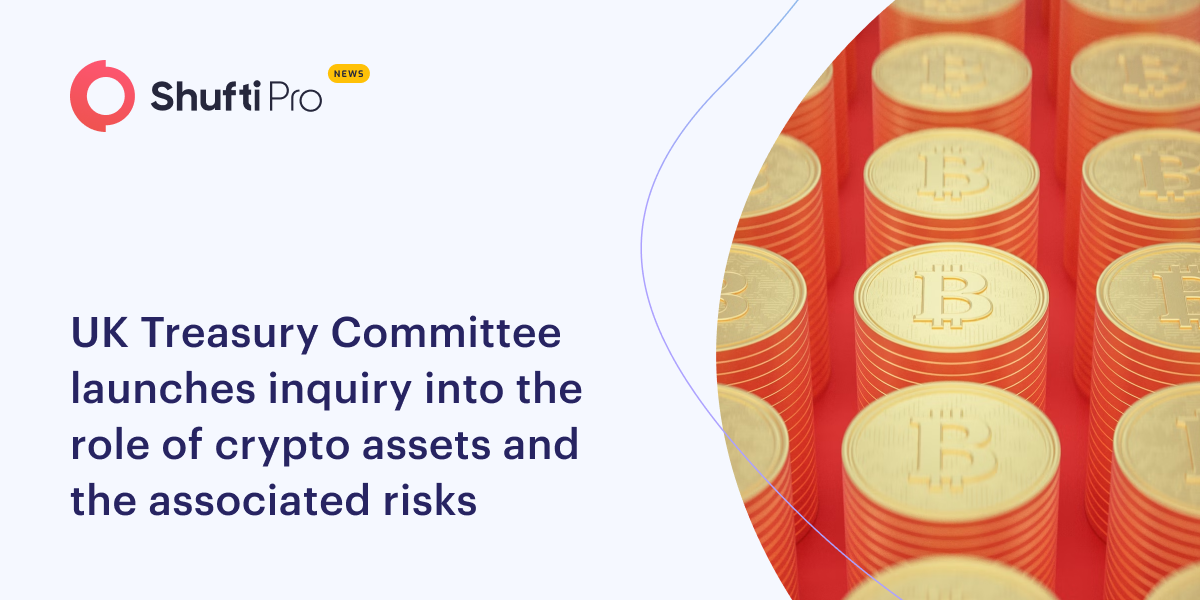 Explore More
Explore More
News
Credit Union Identity Theft Investigation Handed Over to Federal Prosecutors
NY Police have handed over the investigation of a $100,000 ID theft ring allegedly involving a fo...
 Explore More
Explore More
News
ICO Warns Public Bodies Over Failure to Respond FOI Requests
ICO warned public bodies regarding Freedom of Information (FOI) requests failure. Different depar...
 Explore More
Explore More
News
Money Laundering Becomes Another Cause of Poverty, Says UN
According to the latest UN’s report, over 10% of the world’s wealth could be hidden in overseas b...
 Explore More
Explore More
News
UK Approves New Age Verification Laws to Protect Children
The UK government approved the “Online Safety Bill,” which contains measures to protect children ...
 Explore More
Explore More
News
Facebook’s New AI Can Help You Circumvent Facial Recognition
Facial recognition technology is primarily used to detect and identify people but in a turn of ev...
 Explore More
Explore More
News
Coincheck customers fall victim to a data breach
In 2018, Coincheck, the Japanese firm, fell victim to probably the largest cryptocurrency hack in...
 Explore More
Explore More
News
Saudi Arabia Takes New Measures to Tackle Financial Crime
Saudi Authorities have approved a new legislative measure designed to enhance their efforts in fi...
 Explore More
Explore More
News
EUR 27 Million Worth Crypto Assets Seized by the NCA in Money Laundering Crackdown
NCA seizes crypto assets worth £27m last year in a major money laundering crackdown
Although inst...
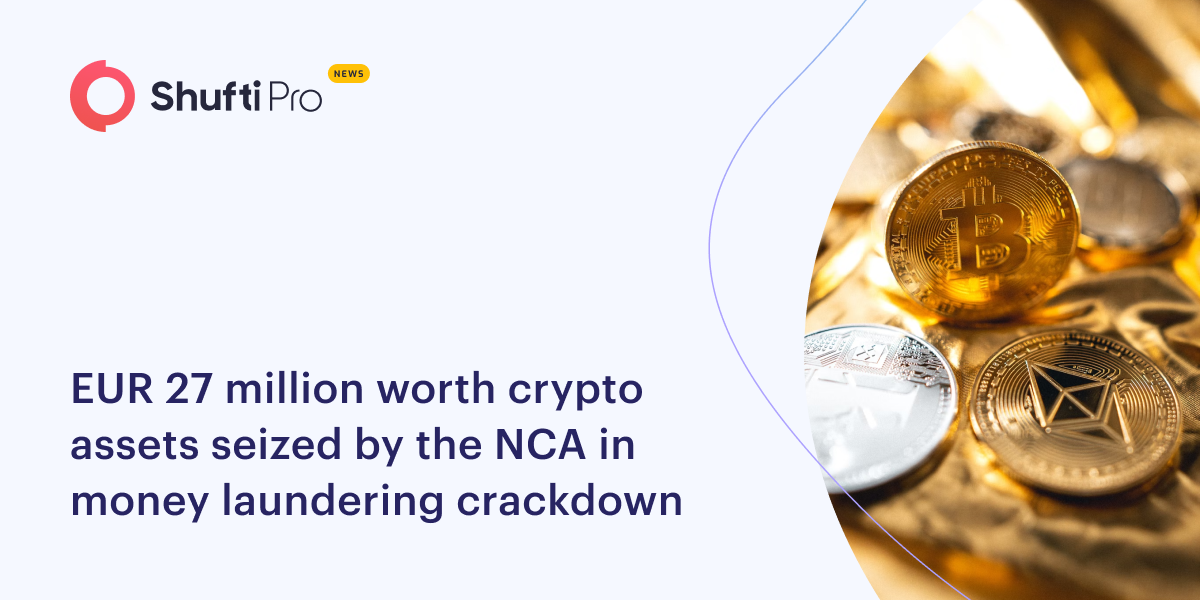 Explore More
Explore More
News
New York Financial Department Releases Guidelines On Dollar-Backed Stable Coins
The New York Financial Department has released “Guidance on the Issuance of U.S. Dollar-Backed St...
 Explore More
Explore More
News
NSW Make Reforms to Counter Money Laundering and Gambling
The New South Wales government embraces new reforms to counter the issue of money laundering and ...
 Explore More
Explore More
News
FATF Member, Saudi Arabia, Winning the World Money Laundering Race
During a virtual meeting on Monday, the FATF supported Saudi Arabia to combat money laundering an...
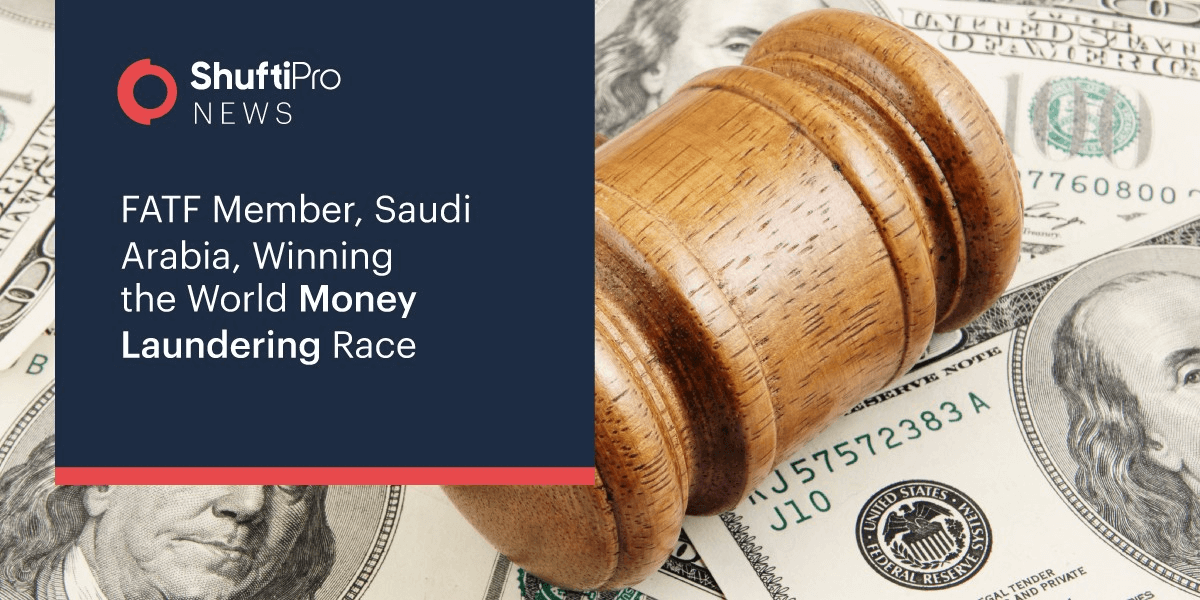 Explore More
Explore More
News
AMLC Reports Steady Rise in Phishing and Hacking Attacks in the Philippines
The Anti Money Laundering Council (AMLC) has reported a steady rise in phishing and hacking attac...
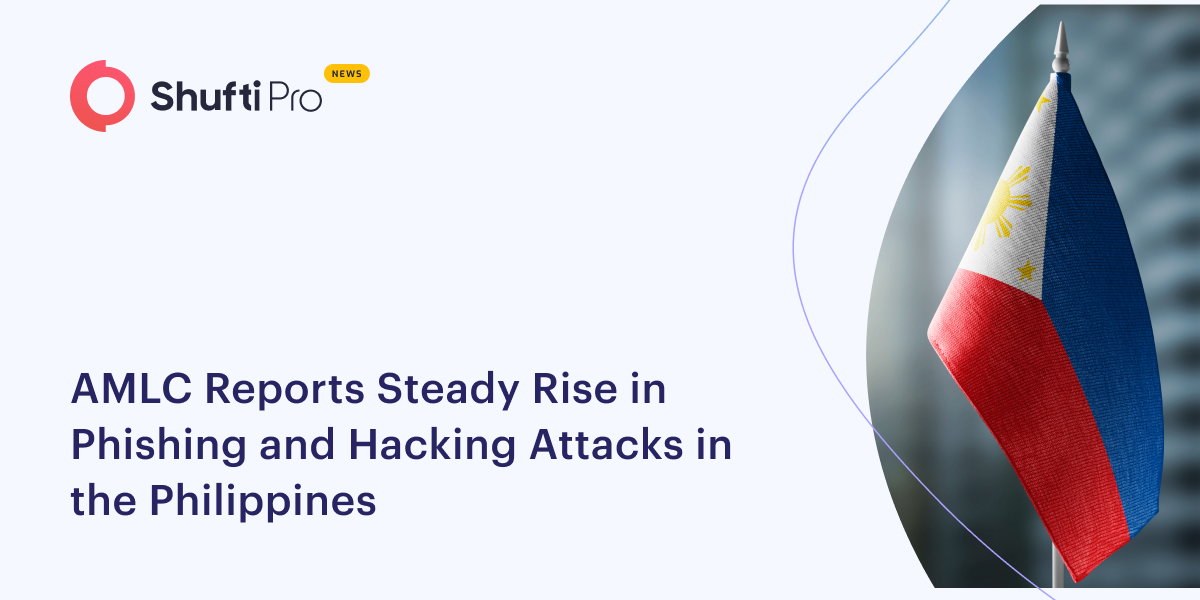 Explore More
Explore More
News
Shufti will provide 10 million free ID and face verifications
Shufti has launched one of a kind charity program for the non-profit and healthcare organizat...
 Explore More
Explore More
News
Investment Scams Rising Through Fake Celebrity Endorsements
Financial fraud through celebrity endorsement is becoming a primary concern as one in six firms o...
 Explore More
Explore More
News
Clearview AI will be facing the legal claims after critical NYT report
Clearview AI is an artificial intelligence firm providing facial recognition technology to US law...
 Explore More
Explore More
News
US Treasury Launches New Financial Force to Combat Illegal Fentanyl Trade
The US Treasury Department has announced the launch of the Counter-Fentanyl Strike Force to comba...
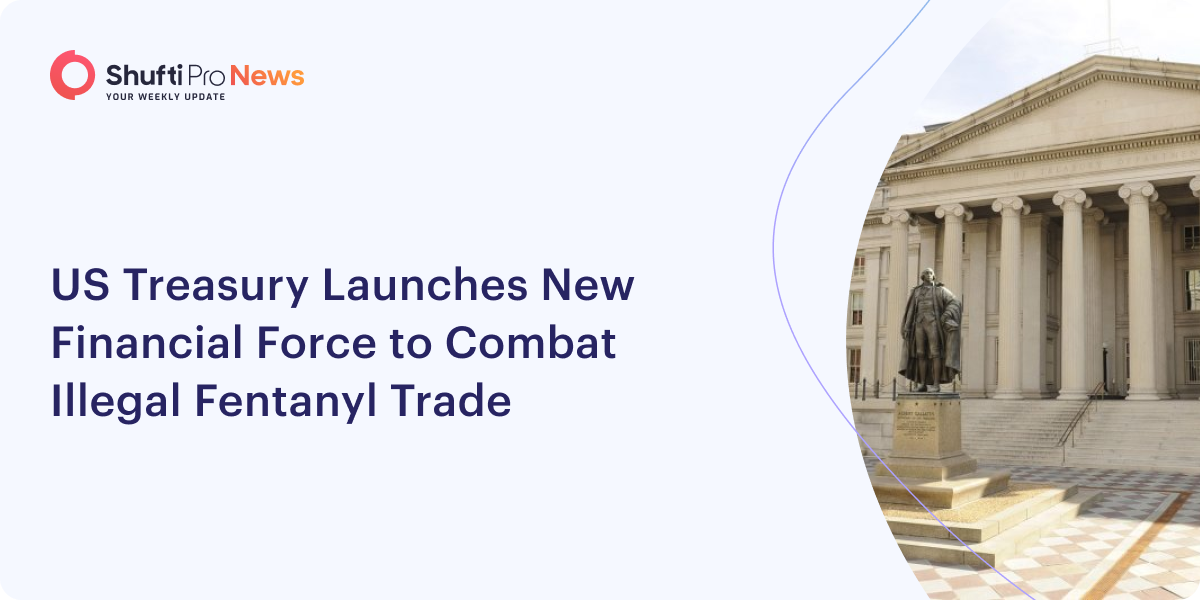 Explore More
Explore More
News
International CBI Sharpen Focus on Due Diligence Procedures in Light of Global Risks
Discussion by renowned experts of major due diligence agencies in the PWM virtual panel highlight...
 Explore More
Explore More
News
MFSA Tightens Financial Regulations for Lawyers, Auditors, and Accountants
Professionals in Malta, lawyers, accountants, and auditors, etc. are resisting the new rules that...
 Explore More
Explore More
News
Binance revokes Upbit hackers’ attempt to launder stolen funds
At just after 16:00 UTC Wednesday, bot Twitter account Whale Alert notified Binance – which has e...
 Explore More
Explore More
News
MAS Rejects License Applications of 100 Crypto Exchanges for Ineffective CDD Protocols
Over 100 companies were either turned down or had to withdraw their applications for a license to...
 Explore More
Explore More
News
Coincheck customers fall victim to a data breach
In 2018, Coincheck, the Japanese firm, fell victim to probably the largest cryptocurrency hack in...
 Explore More
Explore More
News
Facebook’s Calibra rebrands to Novi wallet
Facebook subsidiary and Libra wallet provider Calibra, has recently been rebranded to Novi. The n...
 Explore More
Explore More
News
Bank of Ghana to Introduce Digital Currency in ‘Near Future’
The Governor of the West African nation’s central bank, Ernest Addison, announced the news of Gha...
 Explore More
Explore More
News
FinCEN Proposes the Designation of Eligible Customers as Exempt Person
As a part of the Paperwork Reduction Act of 1995, the Financial Crime Enforcement Network (FinCEN...
 Explore More
Explore More
News
FCA Fines ADM Investors for Violating Anti-Money Laundering Regulations
The UK regulatory department Financial Conduct Authority (FCA) fined $7.9 million to the commodit...
 Explore More
Explore More
News
Poloniex Agrees to Pay $7.6M in Settlement of Sanctions Violations
In a settlement with the Office of Foreign Asset Control (OFAC), Poloniex LLC, a former subsidiar...
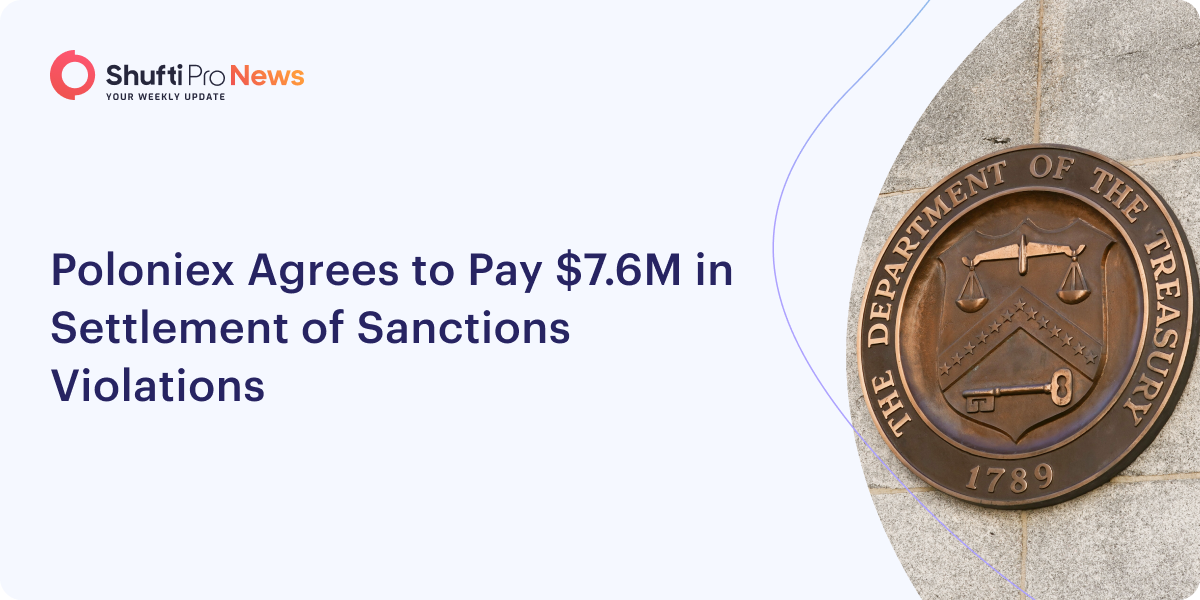 Explore More
Explore More
News
The Chinese central bank confirms digital Yuan mobile app trials
According to a statement, the People’s Bank of China (PBoC) conducts internal tests for the natio...
 Explore More
Explore More
News
A Three-fold Rise in AML Penalties in China in 2020
China’s banks and financial institutions have faced an increase in penalties in the year 2020 due...
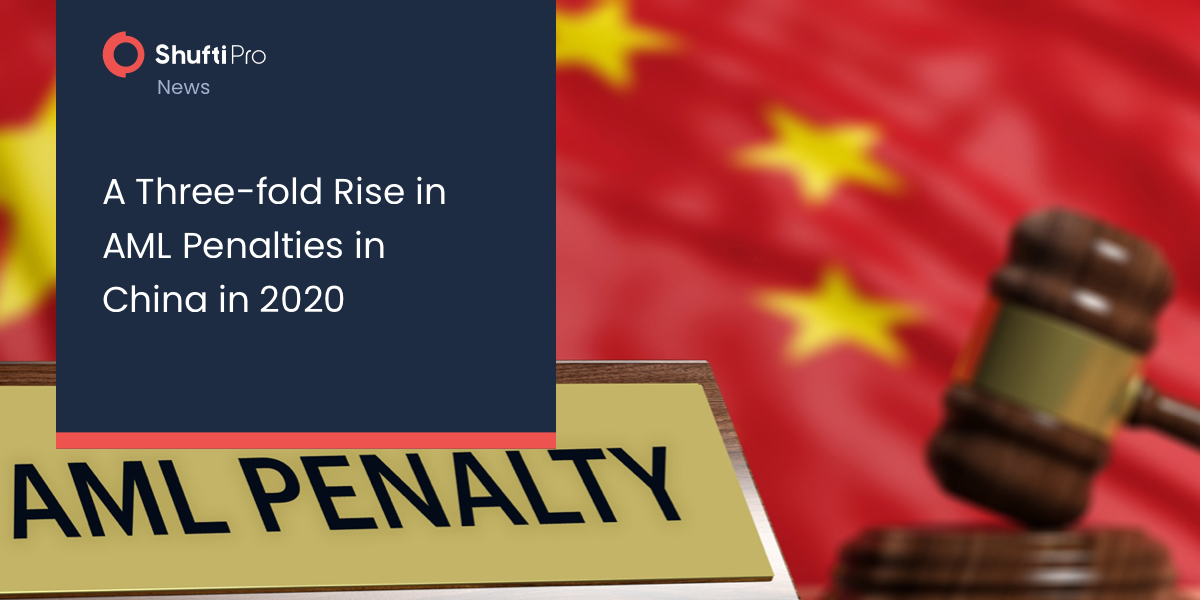 Explore More
Explore More
News
Two foreign nationals charged with Cryptocurrency laundering
The United States Department of Justice has charged two Chinese nationals with laundering $100 mi...
 Explore More
Explore More
News
Turkey Remains on the FATF Gray List for AML Regulations Failures
Turkey’s government has failed to comply with Anti-Money Laundering (AML) and Counter-Financing T...
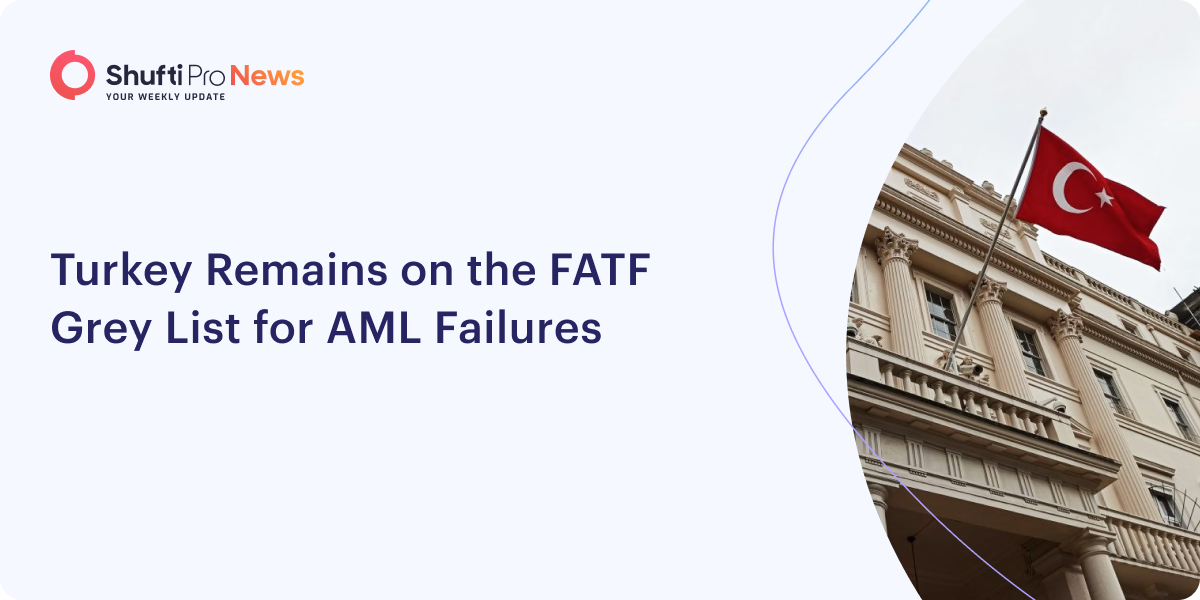 Explore More
Explore More
News
CCPA in effect – Mozilla firefox will let users delete their collected data
The California Consumer Privacy Act came into effect on Wednesday, Jan 1. Being obliged by the ne...
 Explore More
Explore More
News
FCA Fines Ghana International Bank Over £5 million for Money Laundering Failings
The Financial Conduct Authority (FCA) has imposed a £5,829,900 financial penalty on Ghana Interna...
 Explore More
Explore More
News
Ransomware Attack Exposes 5.8 Million Pharmaceutical Records of PharMerica Corporation
A breach notification was filed with the Maine Attorney General’s Office for the first time, reve...
 Explore More
Explore More
News
West Midlands Lose Approximately £8 Million to Employee Fraud in 2022
Business advisors RSM UK has revealed West Midlands as a hotspot for employee fraud. The region h...
 Explore More
Explore More
News
UK Gambling Commission Charges Kindred Brand $8.7M over AML Shortcomings
The UK Gambling Commission has charged the Kindred Group with a hefty £4.19-million (US$5.15 mill...
 Explore More
Explore More
News
$2 Shell company laundered hundreds of millions at Crown Casino Perth
International organizations are believed to be using Crown Perth to launder hundreds through $2 s...
 Explore More
Explore More
News
Chinese Firms to Test Crypto Opportunities in Hong Kong
Chinese Security companies and banks are attracted by Hong Kong’s retail trading in Bitcoin and E...
 Explore More
Explore More
News
EBA Issues Guidance on the Roles of AML/CFT Compliance Officers
The European Banking Authority has published guidelines that state the roles of Anti-money launde...
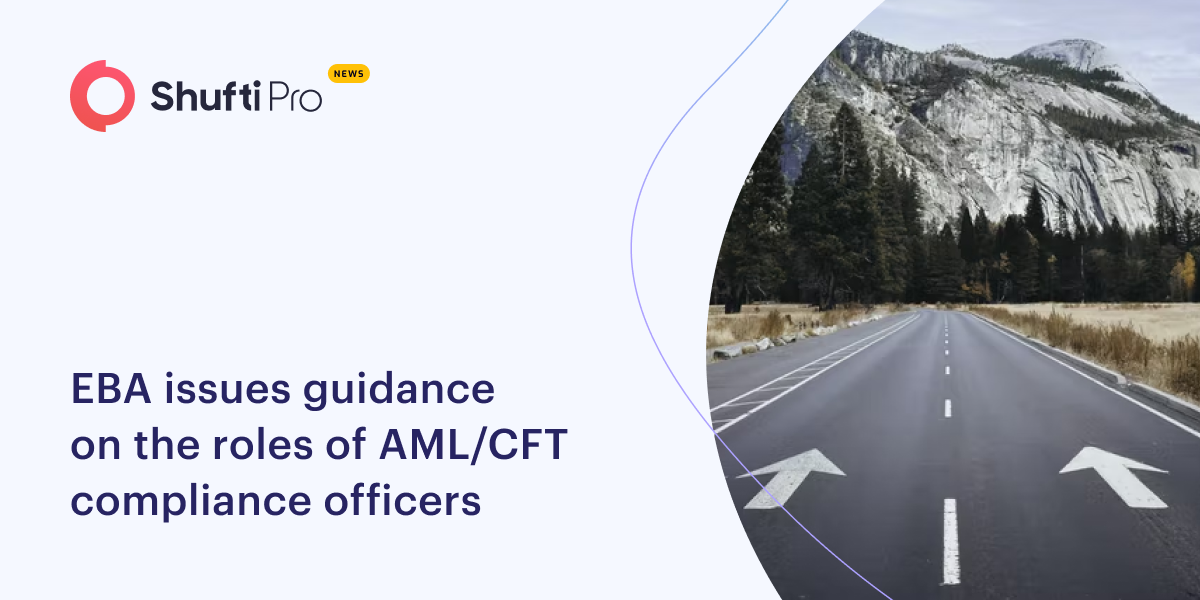 Explore More
Explore More
News
Vietnam Enhances Anti-Money Laundering Laws to Prevent Financial Crimes
Vietnam regulatory departments are redefining their AML compliance measures to supervise cryptocu...
 Explore More
Explore More
News
Cabinet Pressurizing BVI to Improve its Financial Laws
Many international financial regulatory bodies have pointed fingers at BVI’s financial service in...
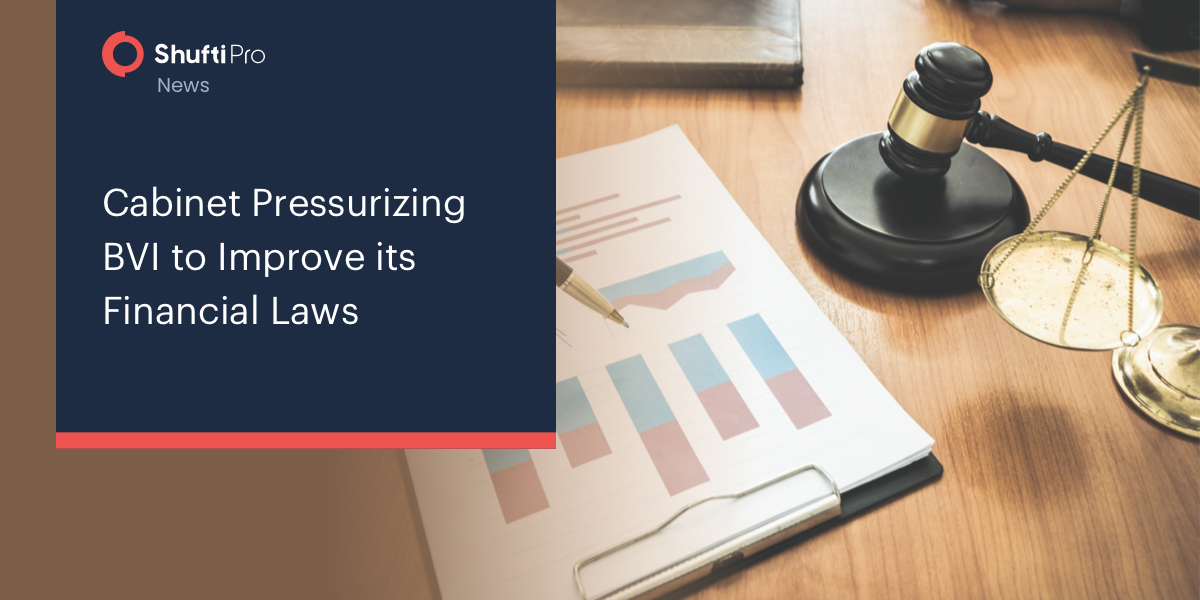 Explore More
Explore More
News
Australian Police Launch Avarus, a Multi-task Force to fight Money Laundering
Australian Federal Police has set up a new multi-agency task force to fight prevailing financial ...
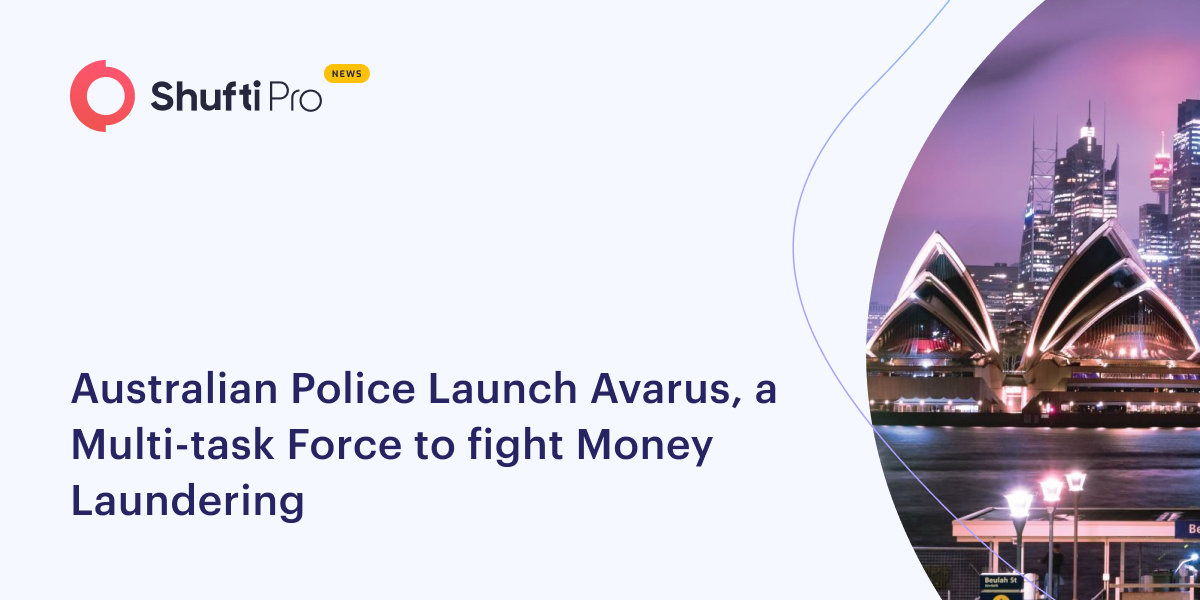 Explore More
Explore More
News
Australia introduces new rules to tackle mobile identity theft
Acma (Australian Communications and Media Authority) has introduced a new regulation to fight ide...
 Explore More
Explore More
News
UAE Strengthens AML Measures to Bolster Virtual Asset Framework
The UAE’s anti-money laundering and counter-terrorism financing department stated it continues bo...
 Explore More
Explore More
News
Shufti Unveils New Product NFC Verification for NFC Based Identity Verification
Shufti has launched a new product, NFC Verification, that uses Near Field Communication techn...
 Explore More
Explore More
News
EU Endorses New Crypto Tax Data Sharing Rules
Strict obligations are set to be implemented in the EU’s digital assets industry. Tax authorities...
 Explore More
Explore More
News
Turkish Regulatory Authorities Launch Investigation on Social Media Influencers for Money Laundering
Turkey’s Minister of Social and Labour Security Department stated they are conducting an in-depth...
 Explore More
Explore More
News
The UK’s largest mobile operator EE has announced its Digital Identity platform
EE, the UK’s largest mobile operator has announced its new Digital Identity platform to protect c...
 Explore More
Explore More
News
China Announces New Office To Combat Money Laundering
An office devoted to combating money laundering and ensuring financial institutes comply with Ant...
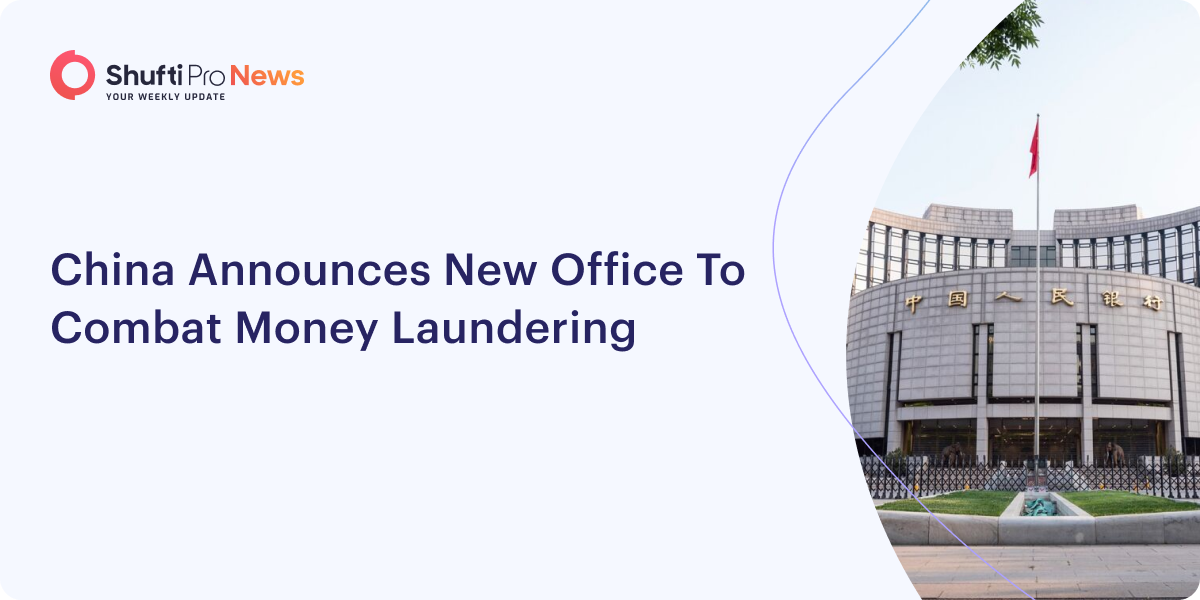 Explore More
Explore More
News
ePayments Systems Ltd to Permanently Close its Operations Due to Insufficient AML Protocols
FCA accused ePayments Systems Ltd of AML compliance failure. The financial money institution has ...
 Explore More
Explore More
News
UK’s National Audit Claims FCA Takes Slow Crypto Enforcement Actions
The UK’s National Audit stated that the Financial Conduct Authority (FCA) has all the rights to c...
 Explore More
Explore More
News
UK Gambling Commission Fines 888 with £9.4m for AML Failings
Great Britain’s Gambling Commission has issued 888 with a fine of £9.4 million over a series of s...
 Explore More
Explore More
News
Westpac CEO Brian Hertzer Resigns Amid Money-Laundering Scandal
The chief executive of Westpac Banking Corporation, Brian Hartzer, has resigned and the chairman ...
 Explore More
Explore More
News
Monetary Authority of Singapore to Support G20 TechSprint Initiative
The Monetary Authority of Singapore (MAS), the nation’s central bank and financial regulator, rec...
 Explore More
Explore More
News
Australian Regulators Seeking to Implement Travel Rules for Cryptocurrency
Australia is looking at the laws that would require cryptocurrency providers to record the inform...
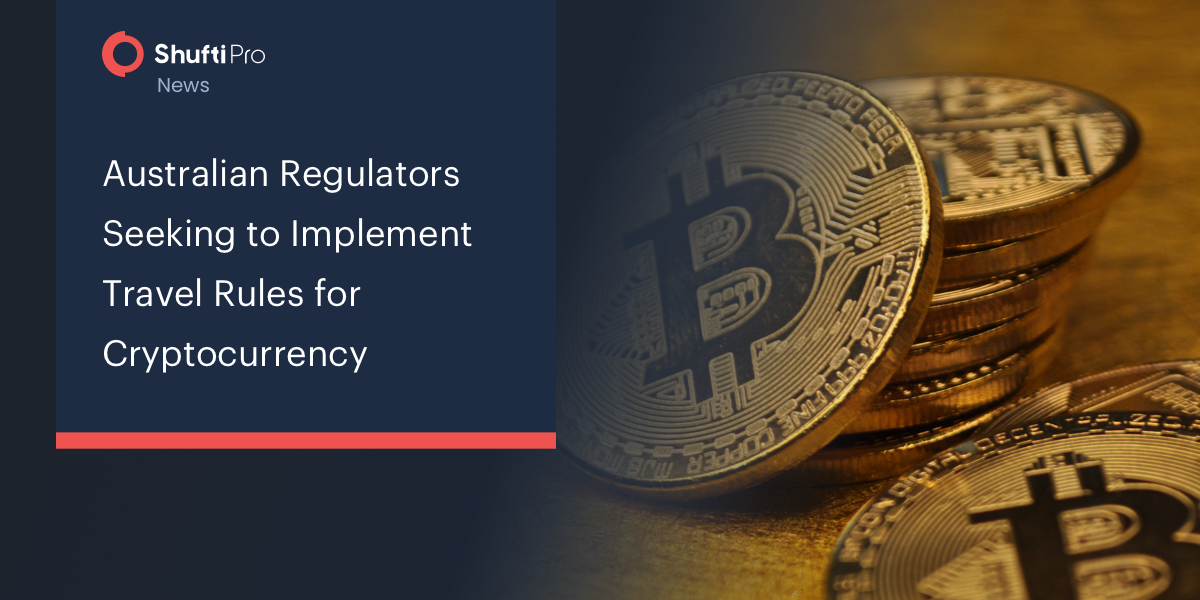 Explore More
Explore More
News
NAB Updating KYC Data of 9M Customers
Project Apollo has been initiated by NAB in an attempt to meet AML obligations.
In August 2021, ...
 Explore More
Explore More
News
Australian Bank, Westpac, Accused of 23 Million Money Laundering Breaches
Australia’s financial intelligence agency, The Australian Transaction Reports and Analysis Centre...
 Explore More
Explore More
News
Japan Considers Facial Recognition to Trace Contact at Large Scale Events
According to the Japan Times report, the country is planning to introduce facial recognition at l...
 Explore More
Explore More
News
Non-compliant Crypto Accounts will Face Immediate Closure from Banks – Says CBN
Nigerian banks are ordered to track and freeze non-compliant crypto accounts, while banks that fa...
 Explore More
Explore More
News
Qatar to Develop National Strategies for Combating Financial Crimes
Qatar has developed vigorous strategies to combat expected financial crimes during the FIFA World...
 Explore More
Explore More
News
BSA-AML Compliance Group Disclose Names of Annual Gaming Conference Speakers
The BSA-AML Compliance group has revealed the names of the speakers attending the annual gaming c...
 Explore More
Explore More
News
Cyprus Updates Money Laundering Measures to Supervise Crypto Platforms
Cyprus reshaped its anti-money laundering measures by amending the “Prevention and Suppression of...
 Explore More
Explore More
News
Feds Bust Columbian Drug Cartel’s Scheme to Launder “Millions” Through US Banks
A Columbian drug cartel’s scheme was busted by the federal prosecutors who moved millions through...
 Explore More
Explore More
News
South Korea Extends AML Compliance Deadline for Crypto Sector
The deadline has been extended to ensure regulators are able to process all the applications subm...
 Explore More
Explore More
News
US Treasury Department Issues AML Study for the Art Market
The US Treasury Department Issues anti-money laundering (AML) study for the art market, aiming to...
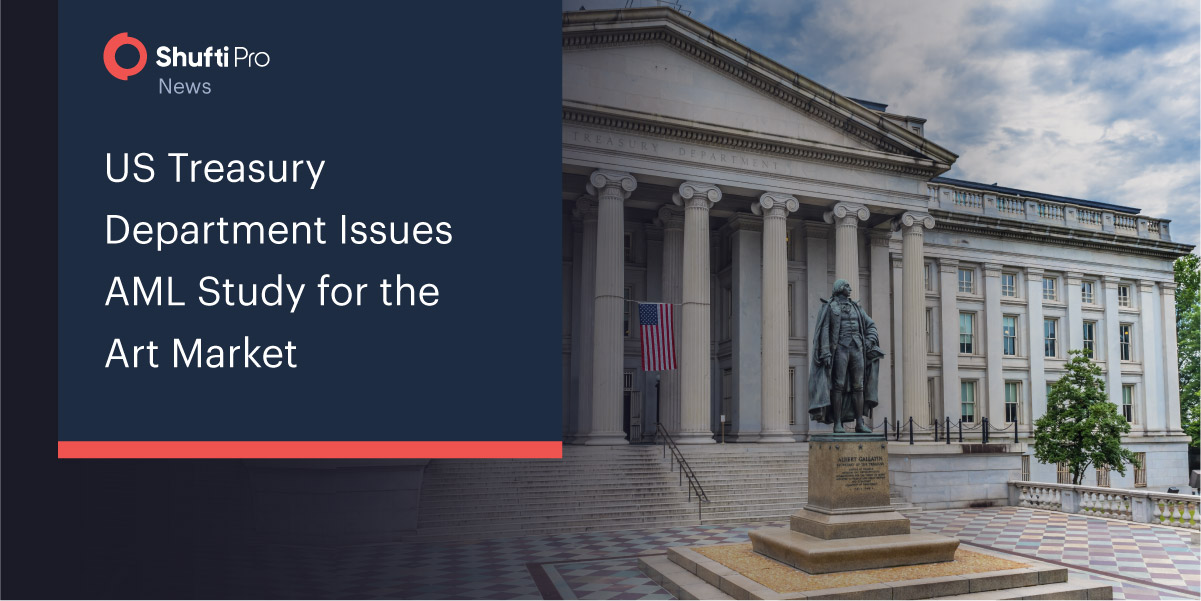 Explore More
Explore More
News
Austrian Gamblers Struggle to Recoup Money from Illegal Betting Sites
Austrian gamblers struggle to recoup money from illegal betting sites after gambling groups face ...
 Explore More
Explore More











































































